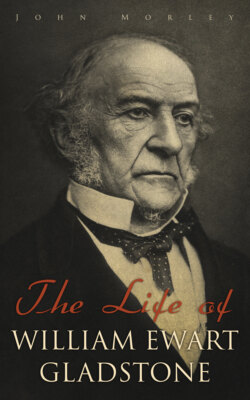Читать книгу The Life of William Ewart Gladstone - John Morley - Страница 51
На сайте Литреса книга снята с продажи.
V
MAXIMS OF ORDERED LIFE
ОглавлениеTo say that he had drawn prizes in what is called the lottery of life would not be untrue; but just as true is it that one of those very prizes was the determined conviction that life is no lottery at all, but a serious business worth taking infinite pains upon. To one of his sons at Oxford he wrote a little paper of suggestions that are the actual description of his own lifelong habit and unbroken practice.
Strathconan, Oct. 7, 1872.—1. To keep a short journal of principal employments in each day: most valuable as an account-book of the all-precious gift of Time.
2. To keep also an account-book of receipt and expenditure; and the least troublesome way of keeping it is to keep it with care. This done in early life, and carefully done, creates the habit of performing the great duty of keeping our expenditure (and therefore our desires) within our means.
3. Read attentively (and it is pleasant reading) Taylor's essay on Money,126 which if I have not done it already, I will give you. It is most healthy and most useful reading.
4. Establish a minimum number of hours in the day for study, say seven at present, and do not without reasonable cause let it be less; noting down against yourself the days of exception. There should also be a minimum number for the vacations, which at Oxford are extremely long.
5. There arises an important question about Sundays. Though we should to the best of our power avoid secular work on Sundays, it does not follow that the mind should remain idle. There is an immense field of knowledge connected with religion, and much of it is of a kind that will be of use in the schools and in relation to your general studies. In these days of shallow scepticism, so widely spread, it is more than ever to be desired that we should be able to give a reason for the hope that is in us.
6. As to duties directly religious, such as daily prayer in the morning and evening, and daily reading of some portion of the Holy Scripture, or as to the holy ordinances of the gospel, there is little need, I am confident, to advise you; one thing, however, I would say, that it is not difficult, and it is most beneficial, to cultivate the habit of inwardly turning the thoughts to God, though but for a moment in the course or during the intervals of our business; which continually presents occasions requiring His aid and guidance.
7. Turning again to ordinary duty, I know no precept more wide or more valuable than this: cultivate self-help; do not seek nor like to be dependent upon others for what you can yourself supply; and keep down as much as you can the standard of your wants, for in this lies a great secret of manliness, true wealth, and happiness; as, on the other hand, the multiplication of our wants makes us effeminate and slavish, as well as selfish.
8. In regard to money as well as to time, there is a great advantage in its methodical use. Especially is it wise to dedicate a certain portion of our means to purposes of charity and religion, and this is more easily begun in youth than in after life. The greatest advantage of making a little fund of this kind is that when we are asked to give, the competition is not between self on the one hand and charity on the other, but between the different purposes of religion and charity with one another, among which we ought to make the most careful choice. It is desirable that the fund thus devoted should not be less than one-tenth of our means; and it tends to bring a blessing on the rest.
9. Besides giving this, we should save something, so as to be before the world, i.e. to have some preparation to meet the accidents and unforeseen calls of life as well as its general future.
Fathers are generally wont to put their better mind into counsels to their sons. In this instance the counsellor was the living pattern of his own maxims. His account-books show in full detail that he never at any time in his life devoted less than a tenth of his annual incomings to charitable and religious objects. The peculiarity of all this half-mechanic ordering of a wise and virtuous individual life, was that it went with a genius and power that 'moulded a mighty State's decrees,' and sought the widest 'process of the suns.'
